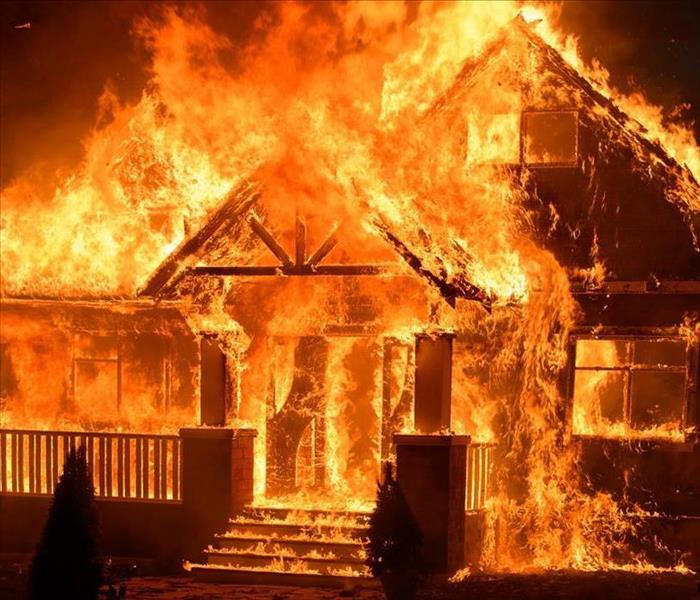Understanding the Classes of Fire Damage
7/21/2021 (Permalink)
If you have experienced a fire in your home, you are likely navigating through the complicated aftermath of assessing the damage, filing an insurance claim and obtaining trusted home restoration to take care of the damages.
Throughout this process, firefighters, insurance agents and restoration teams will want to discuss the damage with you, so it is important to understand exactly what they mean.
Professionals use a series of classes to evaluate fire damage in order to create an organized system. The classes of fire damage have to do with the fire’s origins, as many times, this will indicate the type of damage that is caused. The start of the fire and the combustible materials involved have a large bearing on the extent and severity of the damage, so here is a guide to common terms you may come across.
The 6 Classes of Fire Damage
Class A: Class A fire damage is a result of a fire that occurs when flammable, solid materials are ignited, such as wood, cloth, paper and plastic.
Class B: When a fire starts due to liquids that are ignited—or in some cases, flammable solids that turn to liquids—it is considered Class B damage. This is the class designated for fires related to gasoline and other flammable chemicals that might be the source of the flames.
Class C: Any flammable gas, such as propane, butane and any others, will lead to Class C fire damage.
Class D: There are combustible metals that can cause fires, and if they do, they will cause Class D fire damage. Magnesium, potassium and sodium are all examples of combustible metals that can cause fires.
Class E: Class E is actually quite similar to Class A and B, but has to involve an electrical component as well. It will still require a fire due to flammable solids or liquids, but these items will be ignited by an electrical spark to be considered Class E.
Class F: This type of fire damage is similar to Class B because it involves ignition from cooking oils and fats, but these often burn much hotter and cause much more severe damage than a Class B fire.
If you have had fire damage to your home, we can help out. Contact us at any hour (770) 505-0555 to learn more about our fire restoration process and get a quick response to your home or business




 24/7 Emergency Service
24/7 Emergency Service
